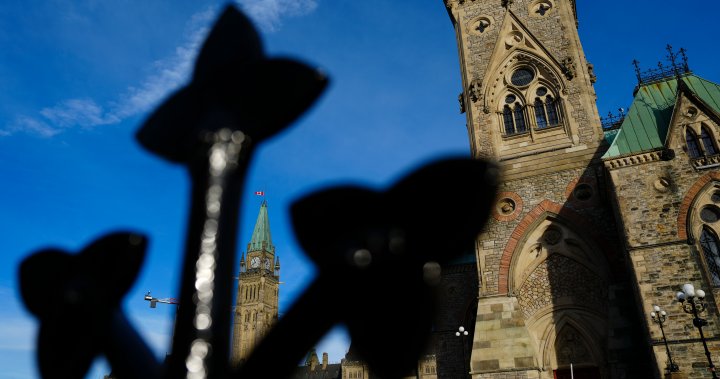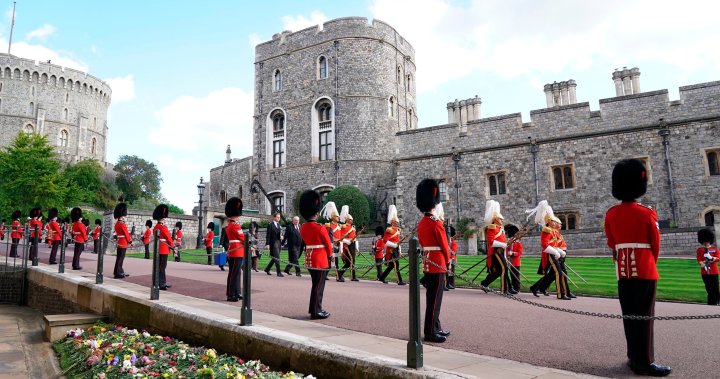More than a third of federal government contracts awarded to GC Strategies over the last eight years were handed out without competition, new documents show.
GC Strategies — the two-person Ottawa IT firm — is at the centre of a widening scandal over its handling of the controversial ArriveCAN program.
The Canada Border Services Agency (CBSA) hired the company to build the pandemic-era app. GC Strategies then subcontracted the work out to other companies.
The auditor general found in a scathing report that costs ballooned to at least $59 million but said the record-keeping on ArriveCAN was so bad it was impossible to determine the final amount.
While GC Strategies is under scrutiny over its dealings with the CBSA, a new breakdown shows the company has been hired by at least 26 other government departments, agencies, and Crown corporations since November 2015.

Over the last eight years, the federal government has awarded the company approximately 100 contracts; 38 per cent of them were sole-sourced or non-competitive, according to the documents.
But it’s difficult to get an exact figure because some records were listed as lost or incomplete, including at Public Services and Procurement Canada, the very department responsible for government services and administration.
Alan Williams, a procurement expert and former assistant deputy minister of material for National Defence, says it speaks to a “lack of accountability” and warns without competition taxpayers risk paying more for less.
Breaking news from Canada and around the world
sent to your email, as it happens.
“It’s the easy way out,” Williams told Global News in an interview Thursday. “Unless you have a legitimate reason to sole-source, don’t.”

In light of the ArriveCAN scandal, Williams says the newly-released breakdown raises more questions.
“Why did these guys get so many contracts?” he asked.
The documents were unveiled as part of an answer to an order paper question filed by Conservative MP Damien Kurek and released Monday. They show that since November 2015, the federal government awarded GC Strategies at least $95 million worth of contracts, after being adjusted for duplicate records.
Canada’s comptroller general looked at a longer period (2011 to present) and found GC Strategies received $107 million in federal contracts.
The 10 departments or agencies that gave the most in contracts to GC Strategies are:
- Canada Border Services Agency awarded $56.4 million for four contracts, three were sole-sourced.
- Treasury Board of Canada Secretariat awarded $9.9 million for 10 contracts, four were sole-sourced.
- Innovation, Science and Economic Development Canada awarded $6.5 million for nine contracts, all were competitive.
- Natural Sciences and Engineering Research Council of Canada awarded $5.5 million for eight contracts, four were sole-sourced.
- Agriculture and Agri-Food Canada awarded $4.6 million for three contracts, all were competitive.
- Employment and Social Development Canada awarded $3.1 million for three contracts, all were competitive.
- Invest in Canada awarded $2.1 million for seven contracts, six were sole-sourced.
- National Defence awarded $1.9 million for 11 contracts, one was sole-sourced.
- Infrastructure Canada awarded $1.2 million for one competitive contract.
- Natural Resources Canada awarded $828,000 for three contracts, two were sole-sourced.
The figures show CBSA gave GC Strategies more money than any other federal government organization at $56.4 million, largely for ArriveCAN.
The Treasury Board of Canada Secretariat handed out the second-highest amount in contracts in terms of dollar value, totalling $9.8 million. Four of the 10 were listed as soul-sourced.
GC Strategies also received multi-million-dollar contracts from Innovation, Science and Economic Development Canada, the Natural Sciences and Engineering Research Council of Canada, and Agriculture and Agri-Food Canada.
Global Affairs Canada doled out $741,00 worth of contracts to GC Strategies, and six out of 10 were sole-sourced.
The department of Public Service and Procurement Canada could not say whether a nearly $25,000 contract it awarded to GC Strategies in 2017 was competitive or sole-sourced because it has “not been able to locate a record.”
“At an undetermined point during a reorganization and relocation of hard-copy files, the contract document itself was misplaced,” said PSPC.
CBC/Radio-Canada was also listed in the documents. It gave GC Strategies a nearly $12,000 contract in 2016 “for a one-time assistance in recruitment services in our digital services sector,” but the Crown corporation could not say whether it was competitive or not because the information was not available in its “tracking systems.”
GC Strategies has faced heightened scrutiny ever since Hogan released her report in February, which determined that ArriveCAN developers showed a “glaring disregard” for basic management practices.
The auditor general called the project one of the worst examples of financial record-keeping she has ever seen and says she found scant explanation as to why the small consulting firm was awarded the initial contract.
“There was little documentation or proof as to why they were selected or how they had the skills and competencies to deliver on the contract,” Hogan said at the time.
The RCMP is examining her findings.
A House of Commons committee grilled the contractors behind the company — Kristian Firth and Darren Anthony — last month.
Both defended their work and disputed the auditor general’s findings. Anthony said during his testimony he never read Hogan’s report.
This week, MPs passed a motion that found Firth in contempt of Parliament for refusing to answer questions at that committee.
Williams called the ArriveCAN debacle “unconscionable” and says more needs to be done to ensure “the integrity of the process” when government contracts are handed out.
“Taxpayers are getting shafted,” he said. “Who will be held responsible?”
© 2024 Global News, a division of Corus Entertainment Inc.





